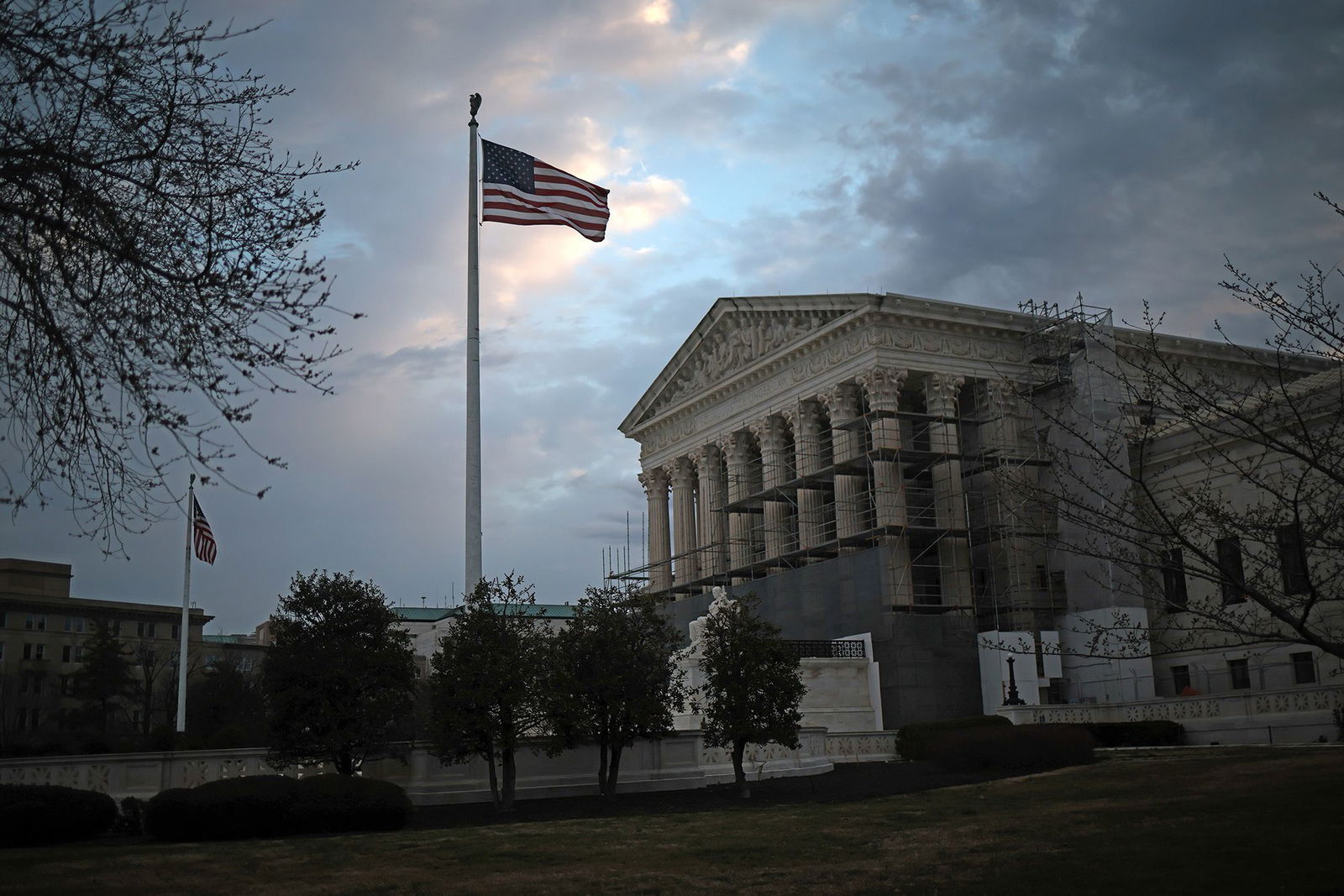Supreme Court likely to side with Catholic Charities seeking exemption from state taxes

The US Supreme Court is shown March 17
By John Fritze, CNN
(CNN) — The Supreme Court signaled Monday it is poised to side with Catholic Charities in a dispute over whether religiously affiliated groups are entitled to an exemption from certain state taxes, a decision that could expand the types of groups that would receive a break under the First Amendment.
After nearly two hours of oral arguments, it was clear that even some of the court’s liberal justices had concerns with a decision from Wisconsin’s highest court that drew a line between groups that teach religious doctrine and those, like Catholic Charities, that do not proselyte to beneficiaries.
“There are lots of hard questions in this area,” said Justice Elena Kagan, a member of the court’s liberal wing. “But I thought it was pretty fundamental that we don’t treat some religions better than other religions and we certainly don’t do it based on the contents of the religious doctrine that those religions preach.”
Critics say Catholic Charities’ position could jeopardize unemployment benefits for hundreds of thousands people who work at religiously affiliated organizations.
In the first religion-centered appeal the 6-3 conservative Supreme Court has heard in nearly two years, the Catholic Charities Bureau and four affiliate organizations say Wisconsin violated the First Amendment’s religious protections by denying exemptions from the state’s unemployment taxes. Churches already receive that exemption and so the question for the justices was in essence whether religiously affiliated entities that don’t teach religion should also qualify.
But that sort of analysis, Catholic Charities warned, requires the state to address philosophical questions about the meaning of religion – the kind of inquiry federal courts usually avoid. That argument appeared to resonate with many on the court.
“Isn’t it a fundamental premise of our First Amendment that the state shouldn’t be picking and choosing between religions?” Justice Neil Gorsuch, a member of the court’s conservative wing said. “Doesn’t it entangle the state tremendously when it has to go into a soup kitchen – send an inspector in – to see how much prayer is going on?”
The conservative justices in recent years have blurred the line that once clearly separated church from state. They have done so on the theory that some government efforts intended to comply with the First Amendment’s establishment clause have been overbroad and discriminated against religion.
The court has expanded the circumstances under which taxpayer money may fund religious schools, for instance, it allowed a public high school football coach to pray on the 50-yard line and ruled that Boston could not block a Christian group from raising a flag at City Hall.
A decision, expected by the end of June, could have broad implications if it sweeps widely enough to cover other religiously affiliated organizations, such as hospitals. It may also limit the government’s ability to look behind the pulpit to assess whether groups are, in fact, religious or only claiming to be in order to avoid taxes.
“Taking religious organizations at their word on the religiousness of their activities makes it hard for the government to challenge if those activities are actually religious,” said Luís Calderón Gómez, a professor at the Benjamin N. Cardozo School of Law at Yeshiva University who specializes in tax law.
“You open the doors for abuse when you just look at whether there’s a sincerely held belief rather than actually looking at the activity” the business is engaged in, he said.
The Catholic Charities Bureau describes itself as the “social ministry arm of the Diocese of Superior” in Wisconsin and says that it carries out a “wide variety of ministries for the elderly, the disabled, the poor,” and others.
Catholic Charities and the other organizations challenging the state are represented by the Becket Fund for Religious Liberty.
The group said its employees would continue to have unemployment coverage but that it would be provided by a church-affiliated entity rather than the state. The group’s opponents say employees in other workplaces may not be so lucky.
Forty-seven states and the federal government include exemptions from unemployment taxes for religious organizations similar to Wisconsin’s suggesting the court’s decision could have wide impact.
Approximately 787,000 employees work for six multibillion-dollar Catholic-affiliated health care systems, according to the Freedom from Religion Foundation, which filed a brief supporting the state. The Service Employees International Union, which also backs the state, estimated that more than a million workers are employed by religiously affiliated organizations.
Wisconsin told the Supreme Court that Catholic Charities has participated in its unemployment insurance program without complaint since 1971.
This story and headline have been updated following oral arguments.
The-CNN-Wire
™ & © 2025 Cable News Network, Inc., a Warner Bros. Discovery Company. All rights reserved.


